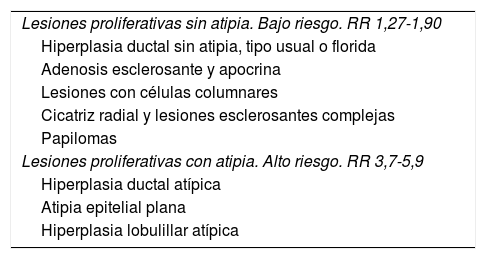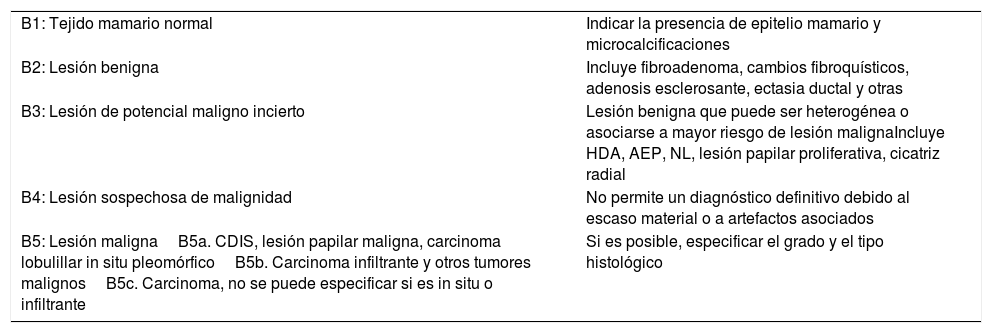Las lesiones histológicas de riesgo de cáncer de mama son lesiones epiteliales proliferativas. Constituyen un grupo heterogéneo de lesiones con distinta magnitud de riesgo, en relación con la presencia de atipia. Plantean el diagnóstico diferencial con lesiones benignas, carcinoma ductal in situ y carcinoma infiltrante. El diagnóstico histológico correcto es importante, ya que plantea distintas opciones terapéuticas, incluyendo biopsias asistida por vacío y cirugía. Revisamos los criterios diagnósticos y el diagnóstico diferencial de la hiperplasia ductal usual, la cicatriz radial y las lesiones esclerosantes complejas, las adenosis de distinto tipo, las lesiones papilares, la hiperplasia ductal atípica, la atipia epitelial plana y la neoplasia lobulillar in situ. Asimismo, recogemos la magnitud de riesgo asociada a las diversas entidades y las posibles opciones de manejo.
Proliferative epithelial lesions are risk factors for breast cancer. They are a heterogeneous group of lesions in which the presence of atypia is related to varying degrees of risk. They should be considered in the differential diagnosis with benign lesions, in situ ductal carcinoma and infiltrating carcinoma. An accurate histopathological diagnosis is important in choosing the best therapeutic option, including vacuum assisted biopsy and surgery. We revise diagnostic criteria and the differential diagnosis of usual ductal hyperplasia, radial scar and complex sclerosing lesions, distinct types of adenosis, papillary lesions, atypical ductal hyperplasia, flat epithelial atypia and lobular neoplasia in situ. Furthermore, we summarize the degree of risk associated with the different conditions and management possibilities.














